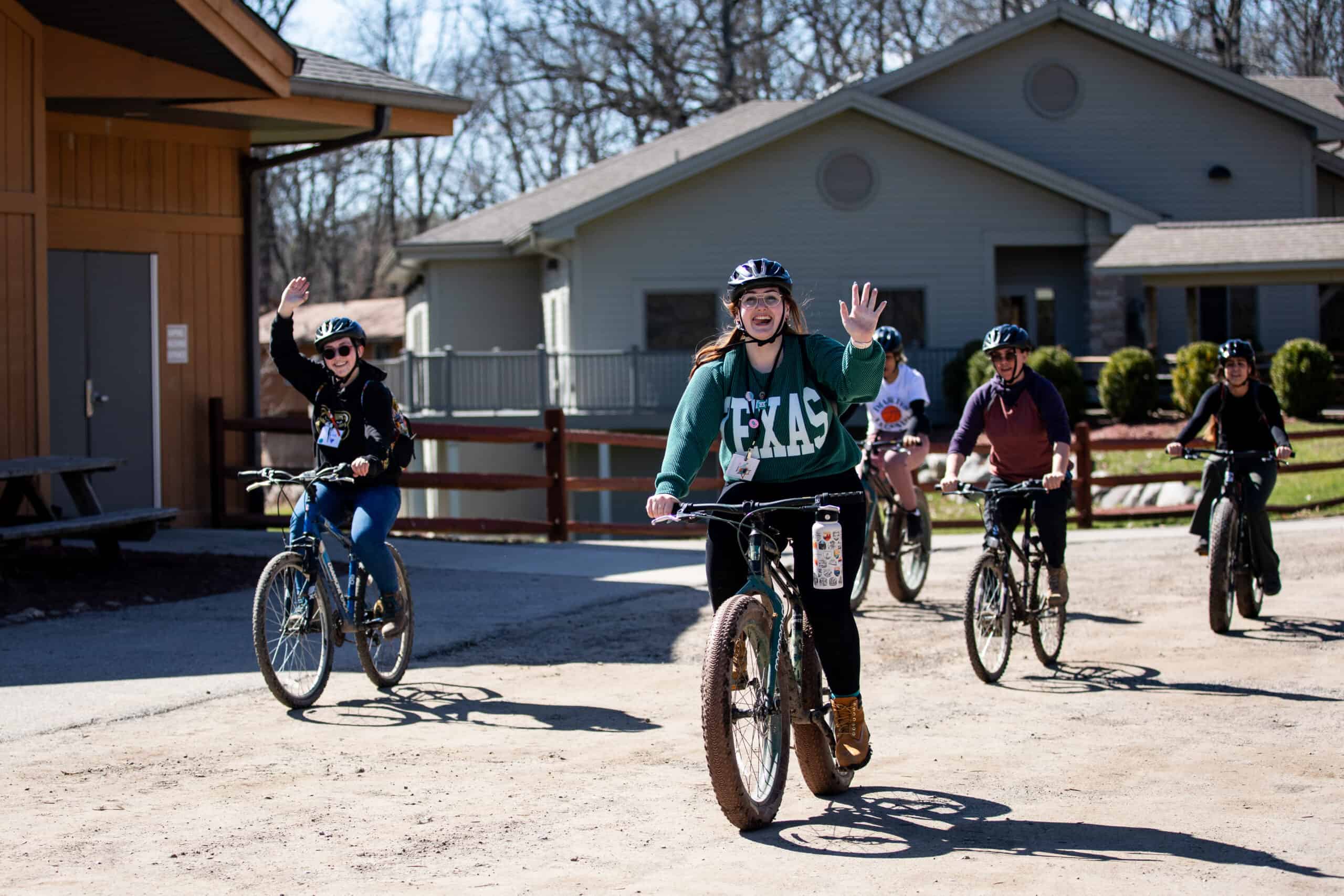A complicated relationship: Diabetes, food & body image
Presented by Julissa Rolon
Session Description:
Learn about the (often complicated) relationship between diabetes, food, and body image from psychologist, Julissa Rolon.
Highlights from this session include:
- What are some of the implications of living with T1D (body image and food)
- What can we do to make this relationship less complicated?
About Julissa Rolon
Julissa is a psychologist, with a master’s in family therapy. She is a diabetes educator and has an educational program in Spanish and that has given her the expertise in videoblogging, community building and mental health. Julissa lives with T1D and her relationship with it has been a curious one from the start. Most of her diabetes education came from social media: She didn’t know anyone with type 1 diabetes in real life, so the online community became her only source of all kinds of knowledge, from specific and useful information to really funny memes. But everything was mostly in english. Julissa didn’t know any blogs in Spanish. When she began to enter the community, she was very unpleasantly surprised by all the ignorance there is on this subject. This led Julissa to create her own blog “Diabetes tipo Ju”. Julissa’s initiative: Diabetes tipo Ju, is such an amazing and generous peer support and educational network for all families living with diabetes.
This session was a part of Connected in Motion’s 2020 Virtual Slipstream: USA program



Diabetes Burnout: Strategies for Success
Presented by Dr Beth Braun
Session Description:
Diabetes is a full job. We don’t get a break from it. Learn from Dr Beth Braun about diabetes burnout and strategies for managing burnout, staying happy and healthy.
Highlights from this session include:
- How to identify diabetes burnout
- Causes of diabetes burnout
- Symptoms of depression disorders
- The importance of emotional support
- Actionable items for diabetes burnout
About Dr Beth Braun
Dr Beth Braun is a Wellness Expert specializing in diabetes management, nutrition, and behavior modification for over 20 years. In her private practice Dr. Braun works with adults and children faced with diabetes burnout, anxiety, depression. She works closely with JDRF, ADA and several diabetes camps running groups on how to stay motivated and integrate body and mind wellness. She currently runs groups for children and adults with type 1 in her practice. Dr Braun was the Director of Behavior Modification for KidShape, a family based wellness program for 25 years. There she developed curriculum to help fight type 2 diabetes and pre-diabetes. Kidshape grew form 1 class at UCLA to a nationwide program. She was included in media including Newsweek magazine, Oprah, and 20/20 discussing how family can develop a healthy lifestyle. Dr. Braun has had Type 1 diabetes for 42 years and started her career in diabetes and the poster child for Philadelphia JDRF and knew since she was a teenage that she wanted to help people with the emotional challenges of diabetes. In the past two years she was one of the first people trained by both the ADA and JDRF in their new mental health programs connection the emotional aspect to diabetes care.
This session was a part of Connected in Motion’s 2020 Virtual Slipstream: USA program



Five tools for diabetes & mental health
Presented by Dr Beth Braun
Session Description
Mental Health is an important but often overlooked part of life with diabetes. Learn the basics about some different tools and strategies available to you to help care for and nurture your mental health as someone with T1D. This effort usually improves physical care as well!
Lessons from this session include:
- Be your biggest cheerleader, not a critic!
- Learn and practice stress management tools
- Awareness of how blood sugars affect your mood or personality
- Build your emotional support team
- Being prepared can reduce anxiety, stress and diabetes drama
About Dr Beth Braun
Dr Beth Braun is a Wellness Expert specializing in diabetes management, nutrition, and behavior modification for over 20 years. In her private practice Dr. Braun works with adults and children faced with diabetes burnout, anxiety, depression. She works closely with JDRF, ADA and several diabetes camps running groups on how to stay motivated and integrate body and mind wellness. She currently runs groups for children and adults with type 1 in her practice. Dr Braun was the Director of Behavior Modification for KidShape, a family based wellness program for 25 years. There she developed curriculum to help fight type 2 diabetes and pre-diabetes. Kidshape grew form 1 class at UCLA to a nationwide program. She was included in media including Newsweek magazine, Oprah, and 20/20 discussing how family can develop a healthy lifestyle. Dr. Braun has had Type 1 diabetes for 42 years and started her career in diabetes and the poster child for Philadelphia JDRF and knew since she was a teenage that she wanted to help people with the emotional challenges of diabetes. In the past two years she was one of the first people trained by both the ADA and JDRF in their new mental health programs connection the emotional aspect to diabetes care.
This session was a part of Connected in Motion’s 2020 Virtual Slipstream: USA program



Using Design to Think Differently about T1D
Presented by Lucy McGroarty
Session Description
Drawing parallels between environmentalism and T1D management, Lucy demonstrates how design methodologies can be used to build resilience in both these realms.
Highlights from this session include:
- What is Design?
- The Design Process
- Design Project Examples
- Messy (Complex) Design
- Design + Environment
- Design + T1D
- Co-Design
About Lucy McGroarty
As a student of the Ryerson School of Interior Design, Lucinda (Lucy) McGroarty became interested in the profound impact of storytelling. A year later, after being accepted into the Master of Design graduate thesis program at Emily Carr University, she was able to put this interest into practice. Her graduate thesis proposed the use of storytelling as a perception-shifting vehicle aimed at solving the ‘burnout’ problem faced by individuals living with type 1 diabetes, including herself. Lucy now teaches design and storytelling at Ryerson University and George Brown College in Toronto.
This session was a part of Connected in Motion’s 2020 Virtual Slipstream: USA program



The relationship between emotional intelligence & Diabetes
Presented by Jiggy Yoon
Session Description
Emotional Intelligence is the ability to understand, use, and manage your own emotions in positive ways to relieve stress, communicate effectively, empathize with others, overcome challenges and defuse conflict. Learn about why developing emotional intelligence is important for life with diabetes.
Highlights from this session include:
- Learn about why emotional intelligence is important for life with diabetes
- Steps to building emotional intelligence
- Lessons about self-compassion
About Jiggy Yoon
Na Eun ‘Jiggy’ Yoon is a motivational speaker and mental coach helping competitive athletes, relentless entrepreneurs, and driven students increase the longevity of their performance and demand for excellence. Born to an extremely traditional Asian family in South Korea, Jiggy knows what it’s like to relentlessly seek A+ performance while also experiencing the toxic end of the spectrum. This is why, unlike many other motivational speakers, Jiggy brings awareness to the importance of mental health, burnout prevention, and self-compassion, just as deeply as she focuses on intense work ethic, perseverance, and self-discipline. Jiggy was diagnosed with Type 1 diabetes during her freshman year of college in 2011. As personal hardships in life accumulated overtime and walking through the T1D journey with no support only got lonelier, Jiggy’s life story includes her suicide attempt using her diabetes supplies during her sophomore year. This incident was one of many experiences that sparked Jiggy’s passion and mission to share the importance of mental health to all audiences, especially those with Type 1 and Asian-Americans. With her outspoken transparency, unapologetic authenticity, and a whole lot of love to give, along with her Mental Health First Aid certification, Jiggy is committed to creating a space where everyone can feel seen, heard, and celebrated.
This session was a part of Connected in Motion’s 2020 Virtual Slipstream: USA program



Mental Health in the Digital Age
Presented by Dr Michelle Sorensen
Session Description
Diabetes technology has improved and has helped so many of us! However, having the right psychological approach to managing data and technology is important. We will discuss how our diabetes technology can sometimes work against us and explore how to use it to improve our overall well-being, rather than increasing diabetes distress or driving unhealthy perfectionism.
Questions investigated during this session include:
- What are reasonable expectations for our diabetes self-management as we improve technology?
- How do we use technology to reduce, not increase, diabetes distress?
About Dr Michelle Sorensen
Michelle Sorensen, founder of the Ottawa South Resiliency Clinic, is a registered clinical psychologist with 20 years of experience providing counselling and psychological services for a wide range of personal problems. These include anxiety and depression, interpersonal issues (both personal and professional), life transitions, and coping with chronic illness. She provides therapy for adults aged 18 and over, including seniors. Her approach to working with clients centers around a cognitive behavioural therapy (CBT) framework, which is based on years of research and empirical evidence. She also integrates mindfulness training into her CBT approach. This involves developing self-compassion, accepting what we cannot control and living in the present moment. Michelle believes in a collaborative approach, based on her view that there are two experts in the room. She sees her role as a psychologist as being very active and takes the lead when her client needs guidance. She is also very involved in the diabetes community across Canada and works with clients struggling with the psychological impact of living with diabetes.
This session was a part of Connected in Motion’s 2020 Virtual Slipstream: Canada program




Tools to help support diabetes & mental health with Michelle Sorensen
Presented by Dr Michelle Sorensen
Session Description
Mental Health is an important but often overlooked part of life with diabetes. Learn the basics about some different tools and strategies available to you to help care for and nurture your mental health as someone with T1D. This effort usually improves physical care as well!
Tools discussed in this session include:
- Balancing thoughts
- Integrating mindfulness
- Journal gratitudes and affirmations
- Work on assertiveness
- Finding purpose and meaning
About Dr Michelle Sorensen
Michelle Sorensen, founder of the Ottawa South Resiliency Clinic, is a registered clinical psychologist with 20 years of experience providing counselling and psychological services for a wide range of personal problems. These include anxiety and depression, interpersonal issues (both personal and professional), life transitions, and coping with chronic illness. She provides therapy for adults aged 18 and over, including seniors. Her approach to working with clients centers around a cognitive behavioural therapy (CBT) framework, which is based on years of research and empirical evidence. She also integrates mindfulness training into her CBT approach. This involves developing self-compassion, accepting what we cannot control and living in the present moment. Michelle believes in a collaborative approach, based on her view that there are two experts in the room. She sees her role as a psychologist as being very active and takes the lead when her client needs guidance. She is also very involved in the diabetes community across Canada and works with clients struggling with the psychological impact of living with diabetes.
This session was a part of Connected in Motion’s 2020 Virtual Slipstream: Canada program








